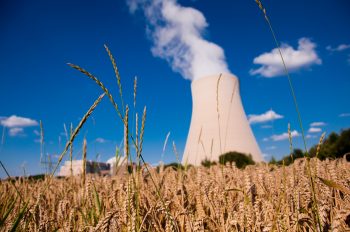
 October 2013 • Tribune 37 •
October 2013 • Tribune 37 •
The demand for energy will continue to increase in the decades to come, more than 33% by 2035 according to IEA, and fossil fuels will remain the main sources at least during that period of time. In such circumstances, can the world back down from nuclear?
The hasty decisions of some European governments to phase out completely or partially their nuclear production, after the Fukushima disaster, have been taken under emotional pressure. As one expert wrote: “It is useful to stress that all analyses of what happened in Fukushima, conclude that the disaster (results from) the underestimation of the risks posed by tsunamis and (is) not a nuclear power plant problem […]. One thing is for sure: the Fukushima disaster reinforced the need for a policy of safety and security at many levels and among all nuclear players.”
Anyway, many countries worldwide continue to invest in nuclear energy or are reconsidering their moratorium on nuclear power generation. According to the International Atomic Energy Agency (IAEA), at the end of 2012, there were 437 operating nuclear power reactors in the world, two more than in 2011. They had a total generation capacity of 372.5 GW, up 3.7 GW from 2011. The latest IAEA anticipations, which are based on Member States declarations, indicate that this number could increase in the next 20 years, with the possibility even to double. There are 67 new reactors under construction…
There are currently many experiments and several competing technologies. It is hard to anticipate which technology (ies) will emerge out of this competition. But what is certain is that, to address the concerns of the people, the technology should be:
- Safe, i.e. designed to resist a Core meltdown, a terrorist attack, a diversion of materials for weapons;
- Sustainable, which implies saving natural resources, to be environmentally friendly, with minimum spent fuel and radioactive waste;
- Reliable and hence, among others, the extended investigation on materials resistance;
- Competitive, extensive researches are being carried out to reduce investment costs.
